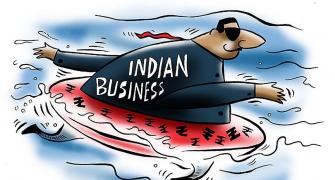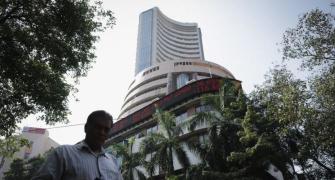After cutting mobile telephony tariffs 50 per cent over the past five months, telecom operators are getting ready to slash rates another 25 per cent in the next two to three months as new competitors crowd into the market.
About five new operators are ready to start operations by the end of this year, adding to the over eight incumbents slugging it out to grab a share in a mobile market that is expected to grow to 750 million subscribers by 2012 against over 450 million at present.
Last month, Tata Teleservices announced a one paisa per second offer for its newly launched GSM services followed by a 50 paisa per minute offer by Reliance Communications (for both its older CDMA service as well GSM services), making it the first incumbent operator to join the price war.
New operator Sistema Shyam Teleservices, which launched on Thursday under the MTS brandname in Delhi, has prepared a business plan predicated on more cuts. As part of the Delhi launch plan, MTS is offering 2 seconds of talk time for 1 paisa or effectively 30 paisa a minute for outgoing calls. However, in addition one has to pay Re 1 a day for this offer.
"We will see bloodbath in telecom tariffs. They have already fallen by half from an average of 70 paisa a minute to around 30 paisa a minute for local calls. We expect them to fall by another 20 per cent ," said CEO Vsevold Rozanov. Sistema Shyam, in which Russia's Sistema owns a majority stake with the Shyam group of Delhi, has launched services in seven circles since last year. MTS is also working out a plan to take on RCom's roaming offer by reducing its existing Re 1 per minute, though no details were available.
A senior executive of Datacom, the joint venture between Videocon group and Mahendra Nahata, that is also expected to launch soon, sees a similar trend. "With many of the new players about to start operations we expect tariffs to fall another 20 to 25 per cent," he said.
Analysts like Mahesh Uppal predict that prices might fall by another 10 per cent or so and then stabilise.
Few incumbents, however, are expected to follow the newcomers' example, saying such cuts were inevitable but also unsustainable. "Customers have become price agnostic as they are so low already. What matters are the brand, coverage and quality. We expect the new players will make losses," says a senior executive of Bharti Airtel, India's largest telecom company. Analysts, however, say incumbents are in a better position to fight the tariff battle.
As Uppal points out, "Once networks have been built, it is a sunk cost, so new operators will drop tariffs to bring in customers. Incumbents, however, have a lot of cushion with margins of 40 per cent against a global average of 20 per cent."
Although low tariffs can help build market share, they do not even cover variable costs and cannot be sustained in the medium and long term. Says Vivek Gupta, partner, mergers and acquisition practice in BMR Advisors: "If companies like Bharti or Vodafone halve their tariffs their entire margins would get wiped out. But they don't have to do so because they have the stable, high-usage customers who do not shift because of only tariff and there are ways to retain them."
Still, a leading mobile player concedes that they cannot hold on to tariff forever. "We might not react now and wait for the Telenors and the Swan Telecoms, with deep pockets, to come in to the market, and then, obviously, we have to match their tariffs."








